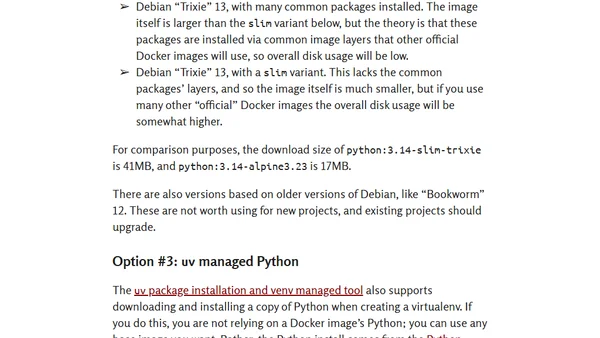
The best Docker base image for your Python application (February 2026)
A guide to choosing the best Docker base image for Python applications, comparing OS images, Python variants, and new tools like uv.
PythonSpeed.com is a blog created by Itamar Turner Trauring, a software engineer known for his work on Python performance, memory optimization, and practical tooling for data science and scientific computing. The site focuses on real production challenges: reducing memory usage, making Python code faster, profiling scientific workloads, improving Docker packaging, and understanding how to ship efficient applications. The writing is clear, measurable, and based on hands-on experience rather than theory. Itamar is the creator of Sciagraph, a performance and memory profiler for Python data science, and the author of open source tools such as Fil and Eliot, both designed to help developers understand how their code behaves. His broader mission is to support useful software development, cut CO2 emissions through faster computing, and encourage engineering that matters. Beyond technical work he is active in local bicycle safety advocacy in Cambridge, MA, helping cities adopt sustainable transportation policies. Thanks to this mix of engineering depth and real-world impact, PythonSpeed.com is one of the most practical and thoughtful resources for developers who want to make Python software faster and more efficient.

13 articles from this blog

A guide to choosing the best Docker base image for Python applications, comparing OS images, Python variants, and new tools like uv.

A guide to accelerating NumPy computations using parallel processing with thread pools and Numba for optimized performance.
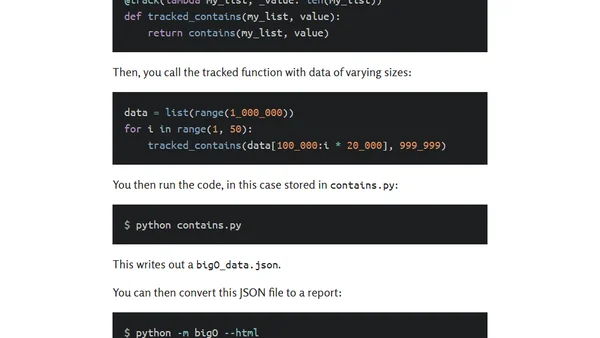
Explains how to write automated performance tests for your code by verifying its Big-O algorithmic scaling using Python's bigO library.

Learn how to write tests to verify that compiler optimizations, like loop elimination, are actually applied to your code.
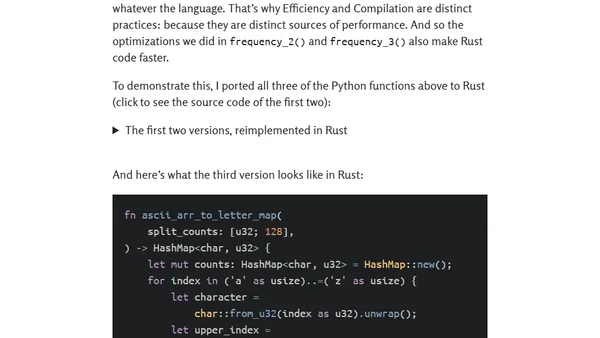
A guide to speeding up Python code using four practices: efficiency, compilation, parallelism, and process, achieving a 330x speedup.
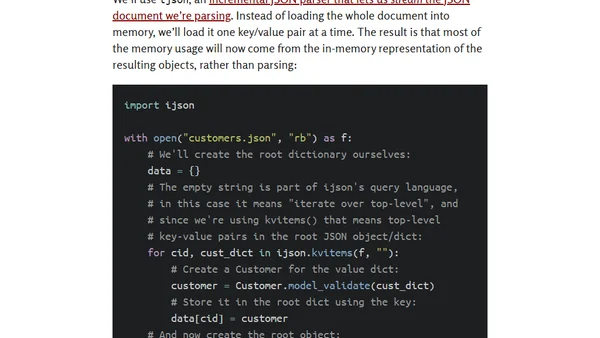
Learn how to load large JSON files into Pydantic models using memory-efficient techniques like ijson and dataclasses.
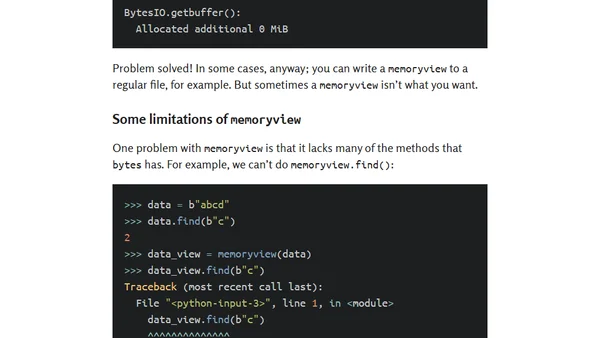
Learn how to use Python's BytesIO efficiently to avoid memory duplication with getbuffer() and getvalue() methods.
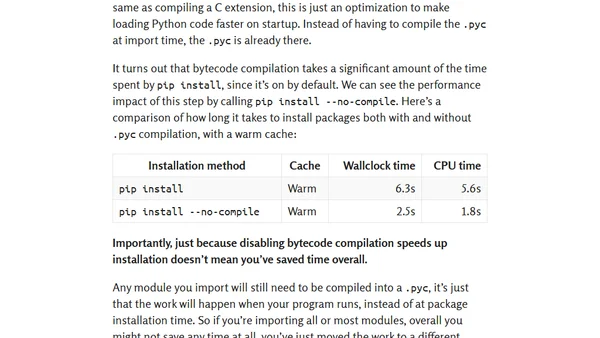
Strategies to speed up Python dependency installation with pip, including caching, bytecode compilation, and using the uv tool.
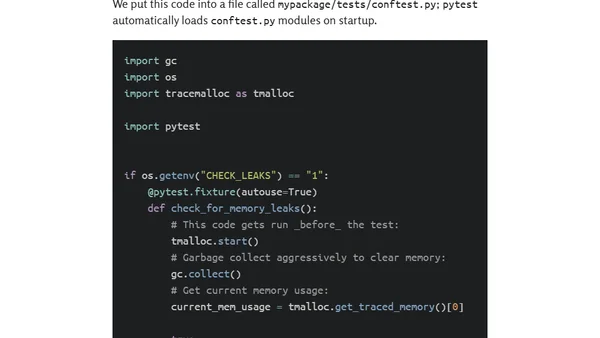
Learn how to use your test suite to identify and catch memory leaks in your software, with examples using pytest.
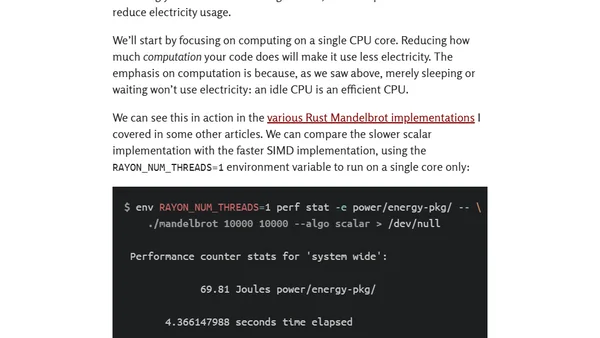
How software developers can reduce carbon emissions by optimizing code performance and reducing computation time.
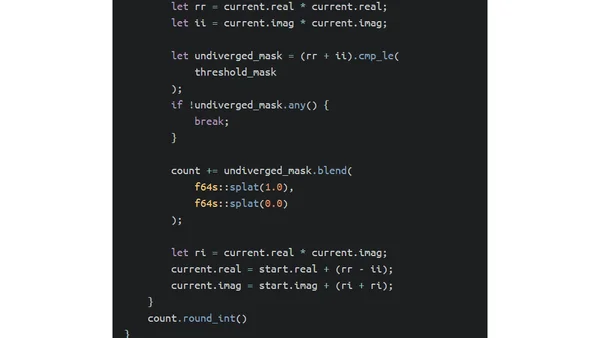
How to use the 'wide' crate for portable SIMD programming in stable Rust, with a Mandelbrot set implementation example.
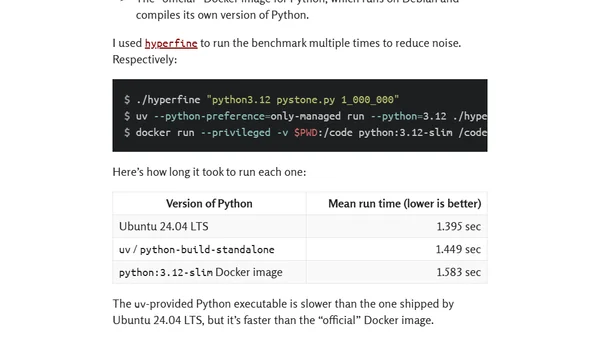
Analyzes the viability of using uv's managed Python in production, covering portability, performance, and security implications.
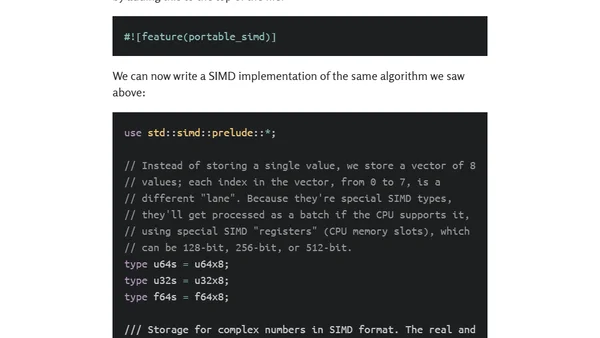
Optimizing Mandelbrot set calculations using SIMD instructions in Rust for faster single-core performance and reduced computational costs.